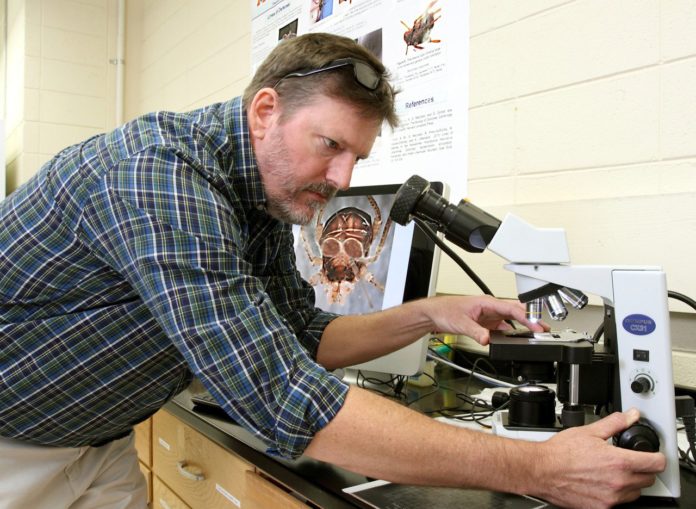MACON, Ga. – For the past 10 years, Professor of Biology Dr. Michael K. Moore and a group of his students have studied the biodiversity, ecology and behavior of the Opiliones arachnids, also known as harvestmen, in the Lesser Antilles. In the last decade, Moore has mentored approximately 14 students, who mostly studied spiders on the island nation of Trinidad and Tobago, W.I.
According to Moore, Trinidad is among the world's richest islands when considering rates of edemism – which is a measure of the uniqueness of the species – as well as the biodiversity of many taxa. Therefore, the island has been the focus of multiple studies of harvestmen.
“Our work describing new species from these islands has increased by 35 percent the known fauna of harvestmen,” Moore said. “We are currently working on a number of new species descriptions, and look forward to additional collection work later this year while on a Mercer on Mission trip to the island.”
Moore said another reason he chose to study the harvestmen is they exhibit both passive and active anti-predator behaviors. “There are interesting body shapes and forms that decrease the risk of being eaten as well,” he said. “We have been testing the responses of these organisms in the forests of Trinidad as we are interested in determining how these behaviors vary by taxonomic group, sex, and activity patterns.”
Danny Van Valkinburgh, CLA '12, participated in a Mercer on Mission trip to Trinidad and was one of Moore's research students. Now in his second year of medical school at the University of Tennessee, he said his experience with the Harvestmen project was invaluable. “It connected the books and studying to a real life experience,” he said. “It amped up the excitement and added a new light to studying academics. It was an experience I'll never forget.”
Dr. Moore earned his Bachelor of Science degree in Zoology from Humboldt State University, his Master of Science Degree in Zoology from the Museum of National Science at Louisiana State University and his Ph.D. in Ecology and Evolution from the University of Louisiana. His research interests include the areas of biodiversity, ecology and evolution.










